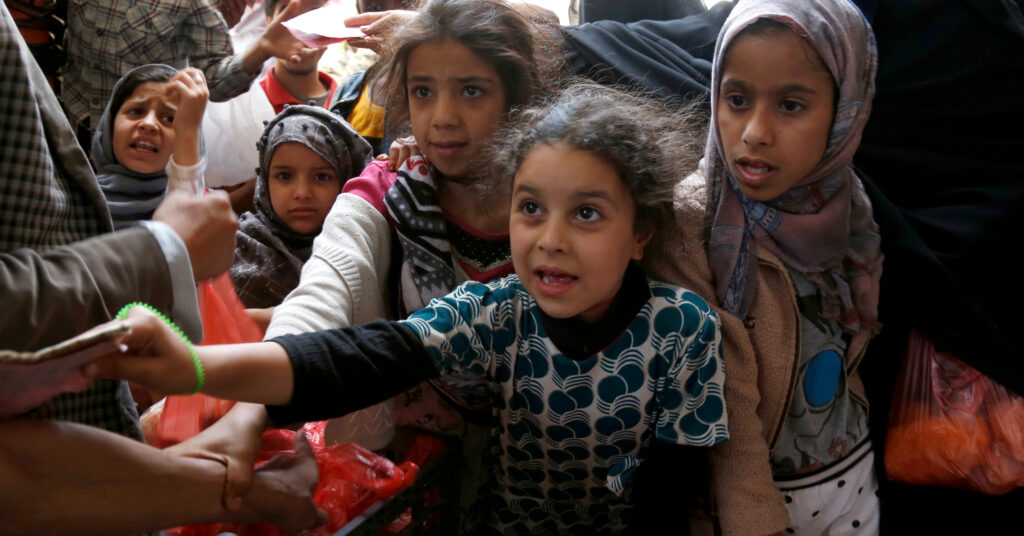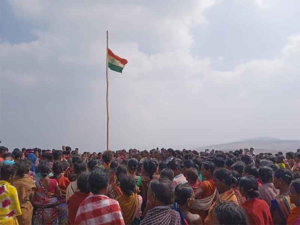11 People Are Dying of Hunger Every Minute—Outpacing Covid Fatalities: Oxfam
As many as 11 people around the world are dying of hunger and malnutrition every minute—outpacing Covid-19 deaths—according to a report published Friday by the international charity Oxfam.
The report, entitled The Hunger Virus Multiplies: Deadly Recipe of Conflict, Covid-19, and Climate Accelerate World Hunger, says that a year-and-a-half into the coronavirus pandemic, “deaths from hunger are outpacing” those from the virus.
“Ongoing conflict, combined with the economic disruptions of the pandemic and an escalating climate crisis, has deepened poverty and catastrophic food insecurity in the world’s hunger hot spots and established strongholds in new epicenters of hunger,” it states.
The report continues:
“Conflict was the single-largest driver of hunger since the pandemic began, the primary factor pushing nearly 100 million people in 23 conflict-torn countries to crisis or worse levels of food insecurity. Despite calls for a global cease-fire to allow the world to focus its attention on battling the pandemic, conflict has gone largely unabated.
“Even as governments had to find massive new resource flows to fight the coronavirus, global military spending rose by 2.7% last year—the equivalent of $51 billion—enough to cover the $7.9 billion 2021 U.N. humanitarian food security appeal six-and-a-half times over. Arms sales spiraled in some of the most conflict-torn countries battered by hunger. For instance, Mali increased its arms purchases by 669% since violence escalated in 2012.”
Overall, around 155 million people in 55 countries are facing crisis levels of food insecurity or worse, the report states. Some of the nations hardest-hit by hunger include Ethiopia, Madagascar, South Sudan, and Yemen. More than half a million people in these countries are facing famine-like conditions—an increase of 500% since the pandemic began.
The climate emergency “was the third significant driver of global hunger this year,” the report states. “Nearly 400 weather-related disasters, including record-breaking storms and flooding, continued to intensify for millions across Central America, Southeast Asia, and the Horn of Africa, where communities were already battered by the effects of conflict and Covid-19-related poverty.”
“Meanwhile, the rich continued to get richer during the pandemic,” the paper notes. “The wealth of the 10 richest people (nine of whom are men) increased by $413 billion last year—enough to cover the entire U.N. humanitarian appeal for 2021 more than 11 times over.”
The report is referring to the world body’s December 2020 appeal for $35 billion to meet humanitarian needs around the world in 2021.
Oxfam executive director Gabriela Bucher said in a statement that “informal workers, women, displaced people, and other marginalized groups are hit hardest by conflict and hunger. Women and girls are especially affected, too often eating last and eating least. They face impossible choices, like having to choose between traveling to the market and risking getting physically or sexually assaulted, or watching their families go hungry.”
“Governments must stop conflict from continuing to fuel catastrophic hunger and instead ensure aid agencies reach those in need,” Bucher continued. “Donor governments must immediately and fully fund the U.N.’s humanitarian appeal to help save lives now. Security Council members must also hold to account all those who use hunger as a weapon of war.”
“To prevent unnecessary deaths and millions more people being pushed to extreme poverty and hunger, governments must stop this deadly disease; a People’s Vaccine has never been more urgent,” she added. “They must simultaneously build fairer and more sustainable food systems and support social protection programs.”
(Courtesy: Common Dreams, a US non-profit news portal.)
❈ ❈ ❈
Editorial addition: The latest annual UN report – The State of Food Security and Nutrition in the World – says: The number of people in the world affected by hunger continued to increase in 2020 under the shadow of the Covid-19 pandemic. According to the report:
- Of the total number of undernourished people in 2020 (768 million), more than half (418 million) live in Asia and more than one-third (282 million) in Africa, while Latin America and the Caribbean accounts for about 8 percent (60 million). Compared with 2019, 46 million more people in Africa, almost 57 million more in Asia, and about 14 million more in Latin America and the Caribbean were affected by hunger in 2020.
- Moderate or severe food insecurity (based on the Food Insecurity Experience Scale) at the global level has been slowly on the rise, from 22.6 percent in 2014 to 26.6 percent in 2019. Then in 2020, the year the COVID-19 pandemic spread across the globe, it rose nearly as much as in the previous five years combined, to 30.4 percent. Thus, nearly one in three people in the world did not have access to adequate food in 2020 – an increase of 320 million people in just one year, from 2.05 to 2.37 billion. Nearly 40 percent of those people – 11.9 percent of the global population, or almost 928 million – faced food insecurity at severe levels. Close to 148 million more people were severely food insecure in 2020 than in 2019.
- At the global level, the gender gap in the prevalence of moderate or severe food insecurity has grown even larger in the year of the COVID-19 pandemic, with the prevalence of moderate or severe food insecurity being 10 percent higher among women than men in 2020, compared with 6 percent in 2019.
- It is estimated that around 3 billion people were unable to afford a healthy diet in 2019. Most of these people live in Asia (1.85 billion) and Africa (1.0 billion), although a healthy diet is also out of reach for millions living in Latin America and the Caribbean (113 million) and Northern America and Europe (17.3 million).




